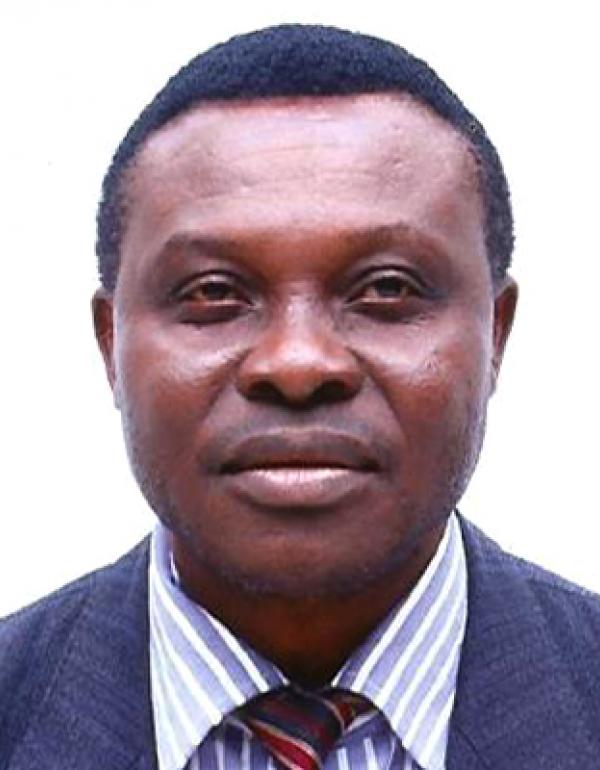
Prof. Francis Emile Asuquo
Prof. Asuquo is a Professor of Chemical Oceanography with specialization in Marine Biogeochemistry, Toxicology and Pollution. He obtained his Bachelor of Science (Hons) degree in Chemistry from the University of Calabar in 1980, an MSc degree from the University of Ibadan, Nigeria, in 1986, and a PhD in Marine Environmental Chemistry from the University of Calabar, Nigeria, 1994. He has worked in the University of Calabar for more than 36 years now. During this period, he has served as a 3 times Head of Department of Physical Oceanography, Acting Director and Director, Institute of Oceanography, Pioneer Dean, Faculty of Oceanography, Acting Vice-Chancellor, as well as Chairman, Committee of Deans, University of Calabar, Nigeria. Presently he is the Coordinator/ Desk Officer, U6 Consortium of African Universities University of Calabar (UNICAL), Desk Officer, Association of West African Universities (AWAU) UNICAL and the Coordinator, Marine Atmosphere & Coastal Ocean Research Network, UNICAL. He received his professional training on Marine Pollution monitoring of trace organics/ impacts on sea and fisheries and Integrated Coastal Zone Management at the Institüt für Meeresforchung, Bremerhaven, Germany (1985) and International Centre for Marine Sciences and Technologies/CNR, Venice, Italy (1993) respectively. He also attended a Regional Training Course on Marine Nutrient Chemistry and Monitoring in Tunis, Tunisia sponsored by IAEA in 2010 as well as a UK fellowship on Darwin Initiative on Biodiversity (Biotope Mapping) at the University of Ghana co-sponsored by the University at the New Castle-upon-Tyne. In 2017, he received professional training on the use of ocean gliders for the monitoring of essential ocean variables (EOVs) and ocean contaminants at PLOCAN, Spain. His main research interests include marine environmental chemistry, water quality/ pollution, watershed management, aquatic toxicology, fate of pollutants especially endocrine-disrupting chemicals (EDCs) and nanomaterials, coastal hydrodynamics, ecosystem health and climate change. Prof Asuquo’s pioneered research provided scientific data and information on the occurrence, distribution and the chemical composition of crude oils and tar balls from Nigerian coastline. His scientific work has x-rayed the water pollution status of the Niger Delta region (hydrocarbons, heavy metals, organochlorines etc). He has contributed to our current understanding of the toxicity of crude oil to Nigerian freshwater fishes and vegetables, toxicity of rubber effluents to Nigerian freshwater fish species, climate change and seasonal variability in Nigeria, climate change and the oceanic carbon cycle in the North Sea, and currently the occurrence and spatio-temporal variation of marine heatwaves in the Gulf of Guinea. Prof. Asuquo has published 188 scientific papers (which comprise 59 peer-reviewed journal articles, 1 Book Chapter, 28 Technical Reports and 100 peer-reviewed conference papers/abstracts) and a Book titled: “The 3Bs of Life: The Black, Brackish and Blue Waters: An Ecological Scenario Misunderstood” published by Solo-Concepts & Publishers, Nigeria. He served as an Adjunct Professor to the University of New England, Australia from 2015 – 2018. Prof. Asuquo belongs to several professional bodies including Commonwealth Association for the Education and Training of Adults (CAETA), African Monsoon Multidisciplinary Analyses (AMMA-Africa), France; Society of Environmental Toxicology and Chemistry (SETAC) Europe/Africa; American Chemical Society (ACS) and AtlantOS Project Working Group, Germany https://www.atlantos-h2020.eu/associate/university-of-calabar/ etc. He is passionate about ocean literacy and coastal management. He has trained 153 undergraduates and 80 postgraduate (50 PGDs, 22 MScs and 8 PhDs) students in West and South African countries.

